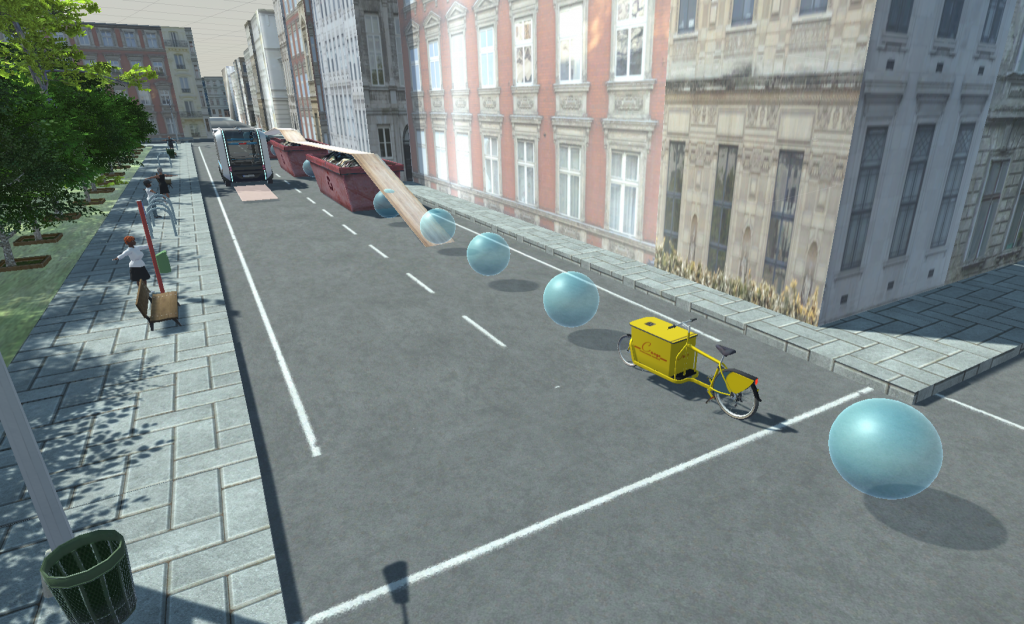
Cycling keeps you fit and is good for the climate. However, too few people pedal. A cycling simulator from TU Vienna is to help develop a bicycle for all.
by Dorian Schiffer
Of course Florian Michahelles rides his bike. Almost every day, he makes his way to work at the Faculty of Computer Science at the Vienna University of Technology on two wheels – even in the cold season, despite the bad weather and early darkness. This makes the professor of ubiquitous computing one of a minority: as of 2021, only nine percent of trips in Vienna are made by bicycle, while a whopping 26 percent are made by car. This figure must be reduced, as the large number of cars causes traffic jams, bad air and CO2 emissions.
But not everyone finds it easy to switch to a bicycle; many people feel unsafe in big-city traffic. For Michahelles, this is an understandable feeling: “As a cyclist, you’re always in the weakest position, so it often takes courage to keep pushing through, for example when bike lanes simply stop.” A comparison with cars shows how precarious the situation is for cyclists: modern vehicles have dozens of safety functions, sensors and on-board computers that help prevent accidents. The average bicycle lags far behind.
But there are technical ways to make cycling safer and more attractive, says Michahelles. The computer scientist and his team are working on a bike that can be used safely by all age groups. The so-called “Eternity Bike” will have active safety measures. “Everyone is familiar with passive safety measures such as the bicycle helmet or lights and reflectors on the bike. Active safety measures, on the other hand, can independently intervene in riding behavior,” Michahelles explains.
In this way, the experts hope to eliminate a major danger for cyclists: loss of balance. As all cyclists know, it often happens faster than you think: you slowly let your bike coast to the traffic light, suddenly a car door opens, and an accident can only be avoided with a daring steering maneuver. What sometimes works doesn’t always end well: Just under a third of all accidents involving bicycles happen because the rider loses his or her balance and falls. This is where the Eternity Bike comes in: sensors powered by the e-bike’s battery are supposed to detect, for example, that the handlebars have been hit too hard. A motor between the handlebars and front fork is then supposed to correct the maneuver and prevent the fall.
The full text can be found in the Ball Magazine 2023
Dorian Schiffer studies physics at the University of Vienna and writes about science, for example in Der Standard and alexandria magazine.